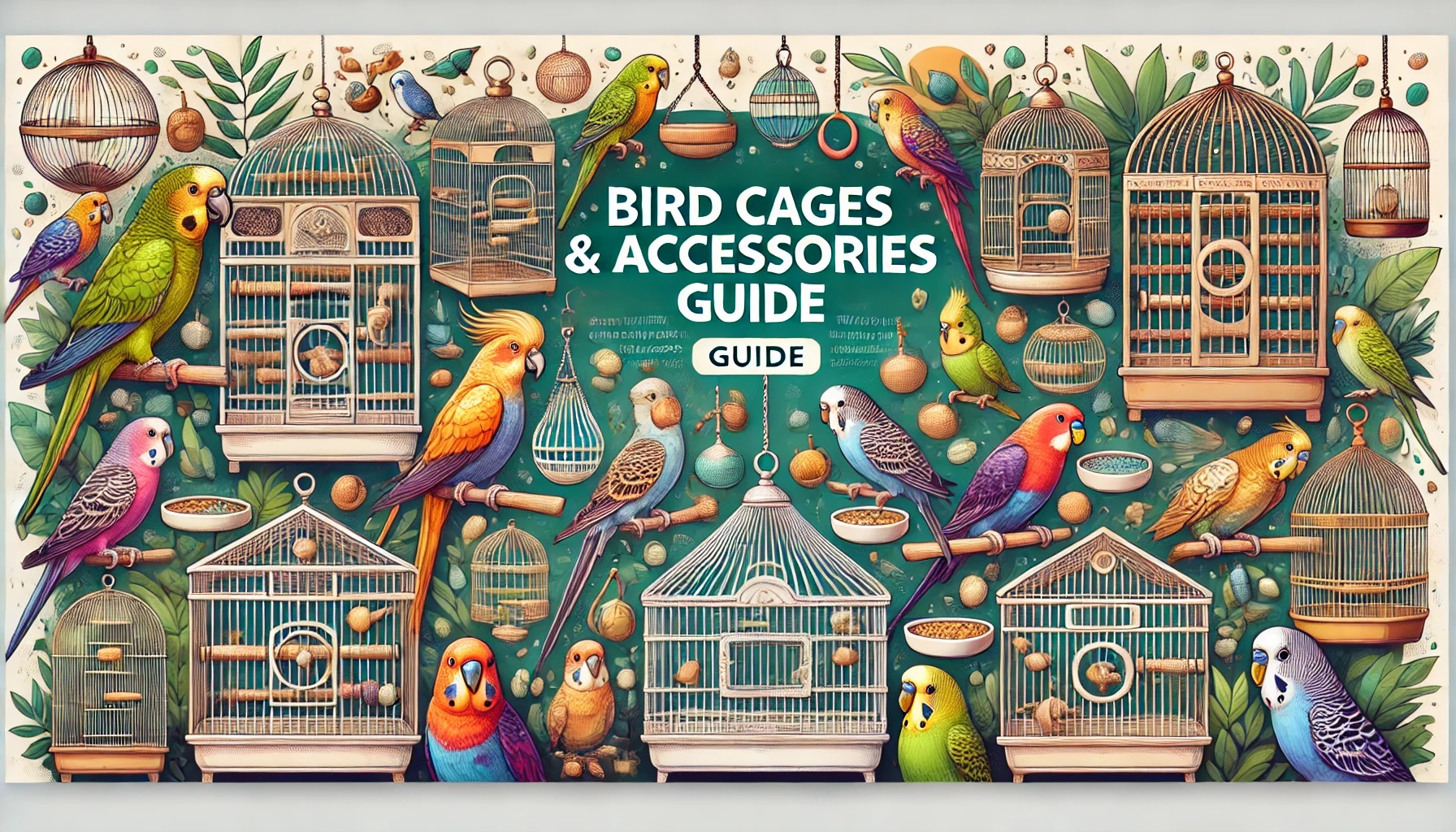
Birds are delightful pets that bring joy and color to any home. However, ensuring their comfort, safety, and health starts with choosing the right bird cage and accessories. This guide dives into the essential elements of bird cages, the must-have accessories, and the importance of proper maintenance, including the use of a quality bird cage cleaner.
Choosing the Right Bird Cage
A bird cage is more than just a home for your feathered friend; it’s their sanctuary. The right cage promotes their well-being and ensures they thrive in a safe environment. Here’s what to consider when selecting a bird cage:
1. Size Matters
The size of the cage should be appropriate for the bird species you own. Larger cages provide more space for exercise and movement, which is crucial for their physical and mental health.
- Small Birds (e.g., finches, budgies): Minimum dimensions of 18 x 18 x 24 inches.
- Medium Birds (e.g., cockatiels, conures): Minimum dimensions of 24 x 24 x 30 inches.
- Large Birds (e.g., parrots, macaws): Minimum dimensions of 36 x 48 x 48 inches.
2. Material and Durability
Choose a cage made of sturdy, non-toxic materials like stainless steel or powder-coated metal. Avoid materials that can rust or chip, as they pose health risks to your bird.
3. Bar Spacing
Ensure the bars are appropriately spaced to prevent your bird from escaping or getting stuck. Smaller birds require narrower spacing, while larger birds need thicker, wider bars.
4. Ease of Cleaning
Look for a cage with removable trays and accessible openings to simplify cleaning. A clean cage minimizes health risks and ensures your bird’s environment remains hygienic.
Essential Bird Cage Accessories
A bird cage isn’t complete without the right accessories. These items enhance your bird’s quality of life by providing entertainment, comfort, and stimulation.
1. Perches
Perches are crucial for your bird’s feet and overall health. Choose perches made of natural wood or textured materials to prevent foot problems.
- Types to Consider: Natural wood, rope perches, or calcium perches.
- Placement Tips: Install perches at varying heights to encourage movement.
2. Food and Water Dishes
Stainless steel or ceramic bowls are ideal as they’re easy to clean and resistant to bacteria. Ensure the bowls are securely attached to the cage to avoid spillage.
3. Toys
Toys provide mental stimulation and prevent boredom. Rotate toys regularly to keep your bird engaged.
- Examples: Chew toys, foraging toys, and mirrors (for species that enjoy reflection).
- Safety Tip: Avoid toys with small parts that can be swallowed.
4. Bird Bath or Misting System
Birds love to bathe to maintain their plumage and stay cool. Provide a shallow bird bath or use a misting system for hydration.
5. Cage Covers
Cage covers create a dark and quiet environment for your bird to rest. Use breathable materials to ensure proper airflow.
6. Nesting Materials
For breeding birds or species that enjoy nesting, include safe and clean materials like shredded paper or coconut fibers.
The Importance of Bird Cage Maintenance
Maintaining a clean and hygienic bird cage is essential for your pet’s health. Birds can be sensitive to bacteria, mold, and debris, so regular cleaning is a must.
Steps to Clean a Bird Cage
- Daily Maintenance
- Remove uneaten food and replace water.
- Spot clean droppings from perches and cage bars.
- Weekly Cleaning
- Remove all accessories and scrub the cage with a bird-safe cleaner.
- Soak food and water dishes in hot, soapy water.
- Deep Cleaning
- Perform a thorough cleaning monthly. Disinfect the cage using a dedicated bird cage cleaner to eliminate harmful bacteria and odors.
- Avoid using harsh chemicals like bleach that can harm your bird.
Recommended Bird Cage Cleaners
Using a bird cage cleaner ensures a safe and thorough cleaning process. Look for products labeled non-toxic and pet-safe.
- Popular Options:
- Kaytee Clean Cage Safe Cleaner
- Nature’s Miracle Bird Cage Cleaner
- Eco-friendly homemade solutions like diluted vinegar (rinse thoroughly).
Best Practices for Bird Cage Placement
Where you place your bird cage impacts your bird’s well-being.
- Location: Choose a quiet area away from drafts, direct sunlight, and kitchen fumes.
- Height: Position the cage at eye level to help your bird feel secure.
- Interaction: Place the cage in a social area to allow interaction with the family.
FAQs About Bird Cages and Accessories
1. How often should I clean my bird cage?
Clean food and water dishes daily, perform spot cleaning as needed, and deep clean the cage weekly or monthly, depending on your bird’s needs.
2. Can I use regular household cleaners on my bird cage?
No, household cleaners may contain toxic chemicals. Always use bird-safe cleaners or natural alternatives like diluted vinegar.
3. What is the best way to keep my bird entertained?
Provide a variety of toys, perches, and foraging activities. Rotate accessories regularly to keep your bird engaged.
4. How do I know if my bird’s cage is too small?
If your bird cannot fully stretch its wings or has limited movement, the cage is too small. Always choose the largest cage you can accommodate.
5. Why does my bird chew on the bars of the cage?
Bar chewing may indicate boredom, stress, or a lack of toys. Provide mental stimulation and ensure the cage is appropriately sized.
Conclusion
Choosing the right bird cage and accessories is key to your bird’s happiness and health. Focus on size, durability, and essential accessories like perches, toys, and feeding dishes. Regular maintenance with a reliable bird cage cleaner ensures your bird’s environment remains safe and hygienic. With the right setup and care, your feathered companion will thrive and bring joy to your home for years to come.





Leave a Reply